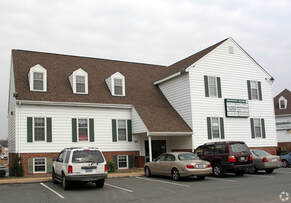|
Learning the piano is an exciting journey that requires dedication, practice, and guidance from a skilled teacher. Many aspiring musicians wonder how much progress they can achieve in just one year of piano lessons. In this blog post, we will explore the key factors that contribute to your growth as a pianist within a year's time, focusing on practice time, lesson length, fundamental skills, sight-reading, repertoire, and daily engagement. Whether you're searching for piano lessons in Stafford, Virginia, or any other area, this guide will provide valuable insights for beginners seeking to make significant strides in their musical journey.
Practice Time and Lesson Length One of the critical factors influencing your progress is the amount of time you dedicate to practice between lessons. Consistent and focused practice is key to developing your skills as a pianist. As a general guideline, aim for at least 30 minutes to one hour of practice per day. However, keep in mind that the quality of practice matters more than the quantity. Ensure that you engage in deliberate practice, focusing on specific techniques or pieces, rather than mindlessly running through exercises. Additionally, the length of your weekly piano lesson plays a crucial role in your development. Typically, beginners start with 30-minute lessons, gradually progressing to 45 minutes or even an hour as they advance. Longer lessons allow for more in-depth exploration of concepts, repertoire, and personalized guidance from your piano teacher. Emphasis on Fundamentals: Note and Rhythm Recognition Building a strong foundation is essential for any aspiring pianist. Note and rhythm recognition form the backbone of your musical understanding. During your piano lessons, your teacher will emphasize these fundamental skills to ensure your progress. By focusing on note reading exercises and rhythm recognition drills, you'll develop the ability to read sheet music fluently and play with accurate timing. Your piano teacher will introduce various techniques and exercises to strengthen your note and rhythm recognition skills. These exercises may include sight-reading assignments, clapping rhythms, and playing scales to reinforce your understanding of music theory. These basics need to be deeply ingrained, so practicing these fundamentals regularly and consistently will significantly contribute to your progress over the course of a year. Developing Good Sight-Reading Skills Sight-reading is an invaluable skill for any pianist. It allows you to play music you've never encountered before with reasonable accuracy. During your piano lessons, your teacher will guide you through sight-reading exercises and introduce you to new pieces to practice this skill. To improve your sight-reading abilities, dedicate a portion of your practice time each day to sight-reading. Start with simpler pieces and gradually progress to more complex ones. Focus on playing fluently, without getting stuck on every note or rhythm. With regular practice, you'll become more comfortable and confident in your sight-reading skills, enabling you to explore a wider range of repertoire. This is typically a neglected skill, but extremely important since having great sight-reading ability will allow you to work through more music quickly. Playing a Variety of Repertoire Playing a diverse range of repertoire is crucial to your growth as a pianist. Your piano teacher will carefully select pieces that are appropriate for your skill level, gradually increasing the difficulty as you progress. Beginning piano lessons in the Virginia Beach area will expose you to various musical styles and genres. Exploring different types of music will enhance your technical skills, musicality, and overall understanding of the instrument. Your piano teacher will guide you in interpreting the music, understanding the composer's intent, and mastering the techniques required for each piece. Regularly performing pieces from different eras and styles will enrich your musical experience and expand your abilities. Playing Daily to Build Familiarity with the Piano Consistency is key when learning any instrument, and the piano is no exception. To make significant progress in one year, it's essential to engage with the piano on a daily basis. Even if you can only spare a few minutes, sitting down at the piano regularly will help you build familiarity with the keys, develop muscle memory, and strengthen your overall technique. In addition to your focused practice sessions, take time to explore the piano beyond your assigned repertoire. Experiment with improvisation, play simple tunes by ear, and explore different sounds and textures. This exploration will enhance your creativity and deepen your connection with the instrument. Conclusion Learning the piano is a rewarding and fulfilling endeavor that requires commitment, practice, and guidance from a skilled teacher. By dedicating consistent practice time between lessons, participating in lessons of appropriate length, emphasizing fundamental skills, developing sight-reading abilities, exploring a variety of repertoire, and engaging with the piano daily, you can make remarkable progress within one year. If you're located in the Stafford, Virginia, area, The Music Studio currently has a full staff of experienced, professional piano teachers who can provide excellent guidance and support on your musical journey. Embark on this year-long journey with enthusiasm, patience, and an open mind. With the right resources and dedication, you'll be amazed at how much you can accomplish as a pianist within a year. So, seize the opportunity, find a piano teacher who resonates with you, and start your musical adventure today.
0 Comments
Leave a Reply. |
AuthorYour teachers here at The Music Studio want to share their insight on our Music Lessons and provide the tips and tricks needed for a successful music education! Archives
October 2023
Categories |
We Would Love to Have You Visit Soon!
Telephone |
|
Hours:M-F, Saturday & Sunday: by appointment only
Phone Hours: M-F 10:00am to 5:00pm Teaching Hours: M-Th 3:00pm - 8:30pm |
 RSS Feed
RSS Feed
